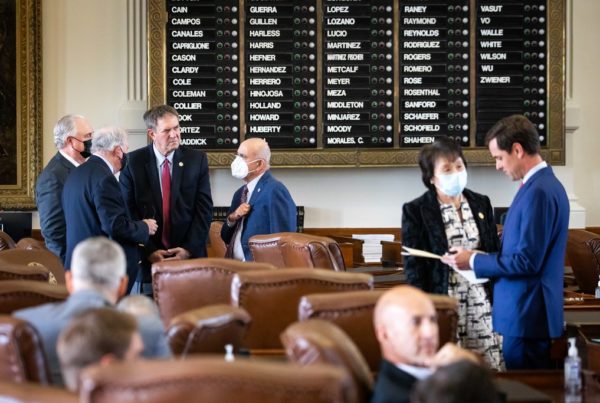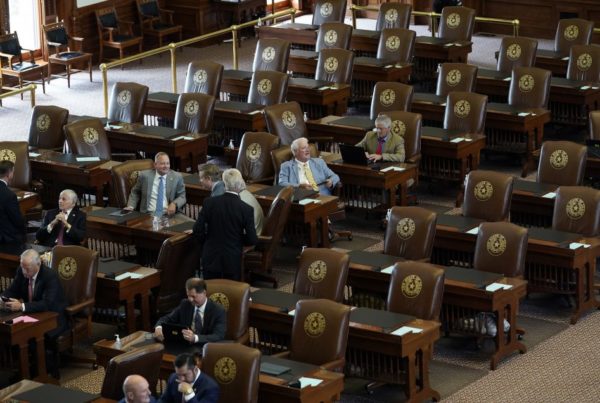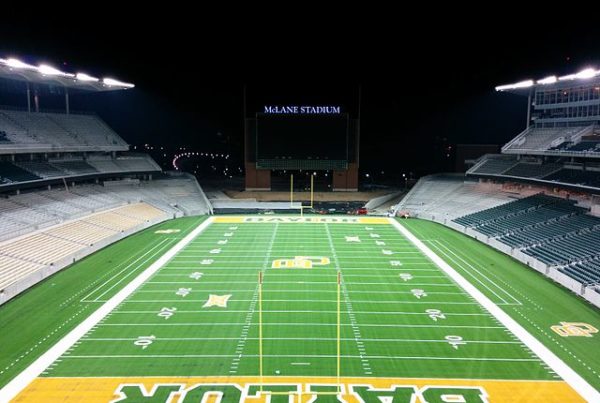From KERA:
A massive infrastructure bill passed in the U.S. Senate on Tuesday, prompting politicians like Rep. Colin Allred (D-Dallas) to hail the measure as a “once in a generation investment in our roads, bridges, mass transit, broadband and clean energy technology.”
The White House said Texas’ share of the money would be at least $26.9 billion for highways, $537 million for bridge replacement, $3.3 billion for public transit improvements, $100 million for broadband access and $408 million over five years to expand electric vehicle charging infrastructure.
Transit experts in North Texas agree the bill — if it passes the House — would be a big deal. But we’ll have to wait to know where exactly the money is going in Dallas-Fort Worth. The Infrastructure Investment and Jobs Act doesn’t list specific projects, only dedicated money for new and existing grant programs. And many of them are competitive.
“It’s not a raise your hand and they send you a check kind of thing,” said Steve Montgomery, director of government relations for Trinity Metro, which provides public transportation services in Tarrant County. “There is competition for these funding programs, and you really do have to show the benefit of your project in order to be eligible for the funding.”
Trinity Metro wants to expand its TEXRail commuter rail from downtown Fort Worth to the near South Side, and also launch a bus rapid transit program that at least goes out to the East Lancaster neighborhood of the city.
“This additional funding … just gives us more hope that there would be funding available for our projects as we’re competing against all the other projects that have merit around the country,” Montgomery said.
The bill is a big boon for metropolitan regions like Dallas-Fort Worth, according to Michael Morris, director of transportation at the North Central Texas Council of Governments. Some of the money is allocated by formula, and the Senate bill also sets authorizing language that outline principles for dispensing the funds.
“It’s a very comprehensive policy,” Morris said.
If it passes the House in a similar form, he said he will be able to move quickly on projects like Rt. 380 in Collin County, finishing the airport freeway in Irving, and putting I-30 at Fair Park underground.
“These are no longer theoretical conversations,” he said. “If you’re interested in technology, if you’re interested in bike paths, if you’re interested in safety, if you’re interested in traditional [infrastructure], if you’re interested in reknitting communities, there’s a home for all of you in this new focus.”
Morris is keenly watching whether the final law will apportion money based on the most recent census numbers. That, he said, would be more fair to states like Texas that have seen significant population growth in recent years.
The bill’s total expenditure is about $1.2 trillion, including $550 billion of new spending over five years.
Though the infrastructure bill garnered 19 Republican votes in the Senate, neither Texas senator voted for the measure. John Cornyn objected to the $256 billion the Congressional Budget Office estimated the bill would add to the deficit over the next decade. Ted Cruz, widely expected to run for president in 2024, also criticized the bill for its price tag.
“The $1.2 trillion infrastructure bill that passed today contained only about $100 billion for roads and bridges,” Cruz said in a statement Tuesday. “If the Democrats wanted to pass a bill just to fix and expand our roads and bridges, they could have done it with near-unanimous support.”
The Biden Administration is hoping to enact both the bipartisan infrastructure bill and a separate, $3.5 trillion budget bill that boosts things like health care, pre-school and climate change response. The larger measure has no GOP support in the Senate.
Got a tip? Email Bret Jaspers at bjaspers@kera.org. You can follow Bret on Twitter @bretjaspers.















